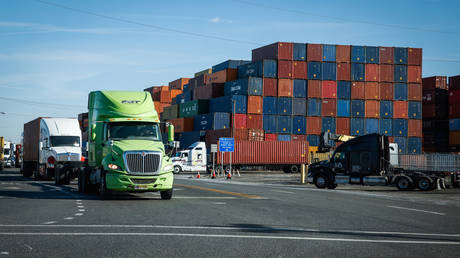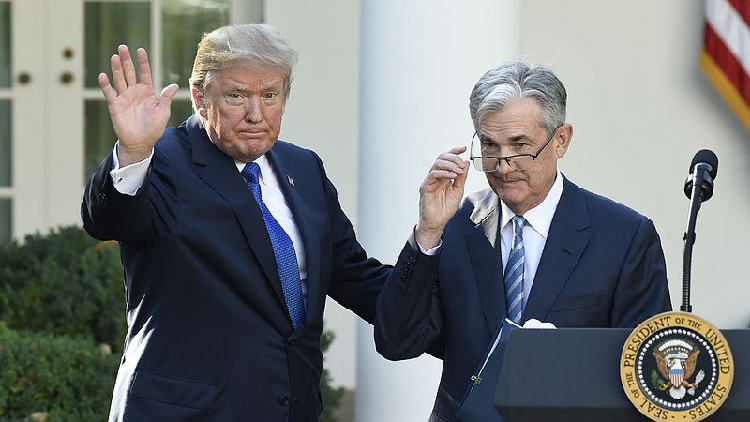Goldman Sachs Warns of Heightened Recession Risk in the US
Goldman Sachs has increased the probability of a recession in the US to 35% in light of the forthcoming massive rollout of country-specific tariffs by the Trump administration. According to the Wall Street bank, the rising tensions from these...

According to the Wall Street bank, the rising tensions from these tariffs could hinder economic growth, heighten inflation, and elevate unemployment rates. The bank had previously estimated the likelihood of a recession at 20%.
On Wednesday, President Donald Trump is anticipated to unveil a significant tariff plan affecting all American trading partners, referring to the event as “Liberation Day.” He has already put tariffs in place on aluminum, steel, and automobiles, in addition to increasing tariffs on imports from China. Moreover, he announced last week that a 25% tariff on cars imported into the US will become effective the next day.
“Higher tariffs are likely to boost consumer crisis,” Goldman Sachs cautioned, noting that rising prices would diminish inflation-adjusted income. The bank has adjusted its end-of-2025 inflation forecast to 3.5%, an increase from 2.8% the previous month, and raised its unemployment projection to 4.5%, which would be the highest rate since October 2021. Additionally, it has reduced its GDP growth forecast to 1%, the lowest since 2020.
Overall, Goldman now assigns a 35% chance of a recession occurring within the next year, up from its earlier prediction of 20%.
While some critics argue that Trump’s tariff strategy could ignite a global trade war, eliciting retaliation from significant trading partners like China, Canada, and the EU, Trump has maintained that the tariffs are essential, asserting that the US economy has been “ripped off by every country in the world.”
Goldman also indicated that the EU may face greater challenges than the US, projecting it could enter a technical recession later this year. “We estimate that our new tariff assumptions will lower euro area real GDP by an additional 0.25% compared to our previous baseline, for a total hit to the level of GDP of 0.7% compared to a no-tariff counterfactual by end-2026,” the firm stated.
Many companies in the EU, including German automakers and French luxury goods firms, as well as wine, champagne, and spirits producers, depend on exports to the US for as much as 20% of their revenue and are likely to feel the adverse effects of the tariffs.
In response to Washington's plans, the EU has committed to delivering a “timely, robust and calibrated” reply, with experts warning that such actions could hinder economic performance, drive prices higher, and escalate the situation into a full-scale trade war.
Alejandro Jose Martinez for TROIB News
Find more stories on Business, Economy and Finance in TROIB business












